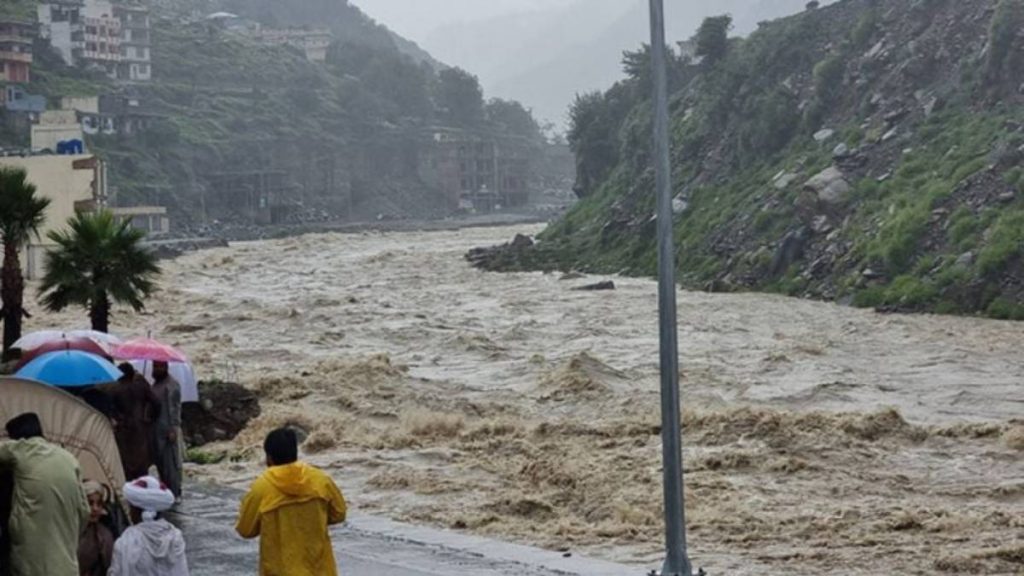The Swat River tragedy has sparked widespread anger after 14 tourists drowned near the Mingora Bypass on June 27. The district administration is under fire for failing to act on repeated flood warnings issued well in advance.
Sources within the Irrigation Department revealed that the first alert came early in the morning. At 6:30 a.m., 6,000 cusecs of water were released from Khwazakhela. Just two hours later, by 8:30 a.m., the flow jumped to 26,000 cusecs. Then, at 9:00 a.m., the surge intensified drastically, reaching 66,000 cusecs. By 10:30 a.m., officials formally alerted the Swat administration about an extreme flood wave of 77,000 cusecs entering the Swat River.
Despite this clear and escalating threat, the district authorities failed to take timely action. There was no restriction placed on public access to the riverbank, and no preventive measures were enforced. This failure of duty directly contributed to the Swat River tragedy.
The Irrigation Department also informed the Provincial Disaster Management Authority (PDMA) and other institutions. But no emergency response followed, raising serious concerns about coordination among the relevant agencies.
According to sources, flood monitoring cells had been activated across all major rivers in Khyber Pakhtunkhwa since June 15. These were part of the province’s monsoon readiness plan. However, Swat’s local administration showed poor execution and slow response, despite the infrastructure in place.
The Swat River tragedy occurred when several families, including one from Sialkot, were having breakfast on a dry riverbed near Mingora Bypass. Suddenly, a violent flash flood swept them away. Fourteen people died on the spot, most of them tourists.
This horrific incident has ignited public outrage and exposed major gaps in disaster preparedness. The lack of coordination between departments during this emergency has become a key point of criticism.
Khyber Pakhtunkhwa Chief Secretary Shahab Ali Shah also acknowledged failures. Speaking near the site, he admitted that the administration had at least a 45-minute window to prevent the disaster. “A small mistake turned into a major tragedy,” he said.
The provincial government has announced compensation of Rs. 1.5 million for the family of each victim. But many believe that this financial aid cannot replace the lives lost due to official negligence.
As details continue to unfold, the Swat River tragedy stands as a harsh reminder of how poor governance and slow action can turn nature’s fury into a deadly disaster. People are demanding accountability, better preparedness, and reforms to prevent another such heartbreaking episode.


